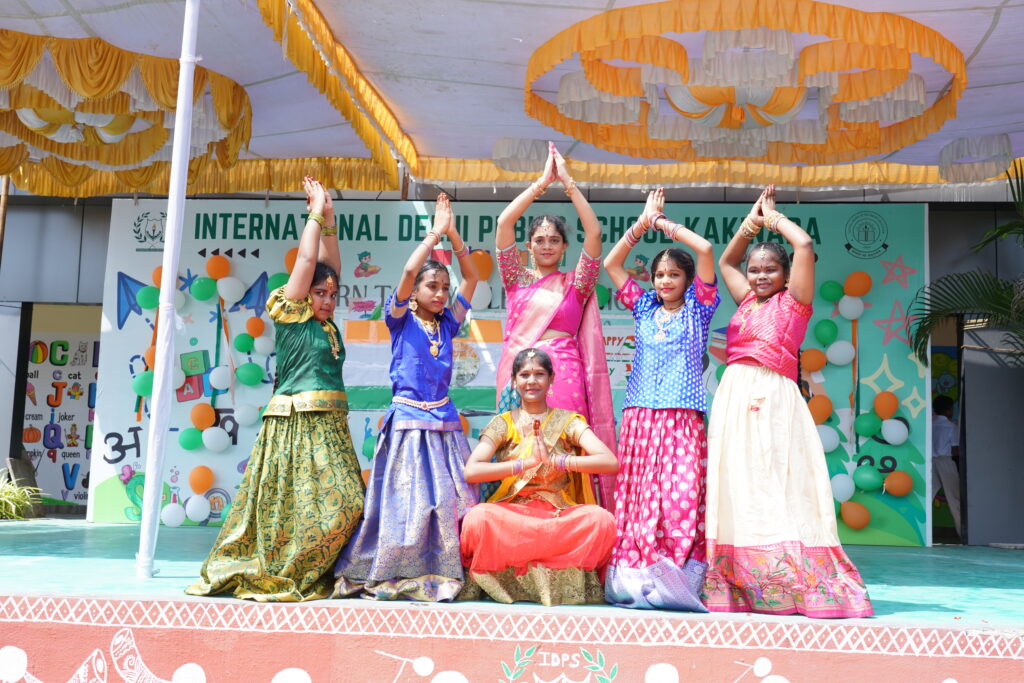What Is the Eco Club at Delhi Public School Kakinada?
The Eco Club is a dynamic, student-driven initiative that aims to instill environmental awareness among students through hands-on activities, campaigns, and educational programs. It serves as a platform for students to participate in eco-friendly projects and learn about sustainable living in practical and engaging ways. Supported by faculty mentors, the club encourages student leadership, creativity, and community involvement in protecting the environment.
Why Was the Eco Club Formed?
The Eco Club at DPS Kakinada was established with the vision of:
- Fostering environmental awareness from a young age.
- Encouraging students to become responsible stewards of nature.
- Integrating sustainability into the school culture.
- Supporting national and global movements like Swachh Bharat Abhiyan and Earth Day.
- Promoting action-oriented learning beyond textbooks.
As climate change and environmental degradation become global concerns, instilling eco-consciousness in students is not just relevant but essential. The Eco Club bridges this gap by turning awareness into action.
How Does the Eco Club Function
The Eco Club operates with a clear structure and goal-oriented approach. Here’s how the club functions:
- Student Leadership: Students are elected or nominated as club leaders, coordinators, and event organizers. This allows them to develop leadership and teamwork skills while driving the club’s initiatives forward.
- Faculty Guidance: Experienced teachers mentor students, providing them with direction, resources, and insights on planning eco-friendly activities and managing club operations effectively.
- Planning and Execution: Regular meetings are held to plan activities, campaigns, and events. Students brainstorm ideas, divide responsibilities, and execute initiatives with a hands-on approach.
- Integration with Curriculum: Many activities are aligned with the academic curriculum, especially subjects like science, geography, and social studies. This creates a seamless connection between classroom learning and real-world application.
Key Features of Eco Club Activities
- Tree Plantation Drives: The Eco Club organizes periodic plantation campaigns within and around the school premises. Students actively participate in planting saplings and nurturing them, creating a greener campus.
- Recycling and Waste Management: Initiatives like paper recycling, e-waste collection, and plastic-free campaigns are regularly conducted. The club promotes the 3Rs—Reduce, Reuse, and Recycle—through creative drives and awareness posters.
- Cleanliness Drives: Inspired by the Swachh Bharat Mission, students take part in cleanliness drives both inside the campus and in nearby communities. These activities instill a sense of civic responsibility.
- Eco-Friendly Celebrations: The club encourages celebrating festivals in an eco-conscious manner, such as using clay idols during Ganesh Chaturthi, avoiding fireworks during Diwali, and promoting sustainable gifting during holidays.
- Awareness Campaigns: Through skits, debates, posters, and rallies, students raise awareness on environmental issues like global warming, water conservation, pollution, and deforestation.
- Composting and Organic Gardening: The school’s Eco Club has introduced composting units and organic gardens where students learn to grow vegetables and herbs using sustainable techniques.
- Energy Conservation Projects: The club promotes energy-saving practices like turning off lights when not in use, promoting solar energy, and organizing “No Electricity Hour” campaigns within the school.
- Green Competitions: Regular competitions such as poster making, eco-themed quizzes, and best-out-of-waste contests are organized to encourage creativity and innovation in sustainability.
Benefits of the Eco Club
- Environmental Awareness: Students develop a strong understanding of ecological issues and learn how their actions can make a difference.
- Hands-On Learning: Through real-world activities, students experience practical applications of classroom lessons, making learning more meaningful and impactful.
- Leadership and Teamwork: Taking initiative in planning and executing activities helps students build leadership skills, work collaboratively, and take responsibility.
- Community Involvement: Many Eco Club activities extend beyond the campus, allowing students to engage with local communities and promote environmental consciousness.
- Creative Expression: With opportunities to create eco-art, design posters, or perform skits, students can express their passion for the environment in imaginative ways.
- Healthy Lifestyle Choices: Activities like organic gardening and clean-up drives encourage students to adopt healthier, more sustainable habits in their daily lives.
- Lifelong Values: The Eco Club fosters lifelong values of respect for nature, conservation, and social responsibility.
Conclusion
The Eco Club at Delhi Public School Kakinada stands as a beacon of sustainability and student empowerment. Through a blend of awareness, action, and education, it nurtures future environmental leaders who are equipped to address global challenges with local solutions. By participating in the club, students not only gain knowledge but also develop a deep-rooted respect for nature and a commitment to preserving it. With its innovative activities and strong student engagement, the Eco Club continues to make a meaningful impact—within the school and beyond.
Frequently Asked Questions
The Eco Club aims to instill environmental consciousness among students by involving them in activities that promote sustainability and ecological responsibility.
While specific activities at DPS Kakinada are not detailed in the available information, Eco Clubs in schools often engage in:
Awareness campaigns: Educating peers and the community about environmental issues.
Tree plantation drives: Encouraging afforestation and green cover enhancement.
Waste management initiatives: Promoting recycling and proper waste disposal.
Energy conservation projects: Implementing practices to reduce energy consumption.
Students interested in environmental activities can join the Eco Club by contacting the club coordinator or faculty advisor at DPS Kakinada. Participation may involve attending meetings, planning events, and leading initiatives.
Specific achievements of the DPS Kakinada Eco Club are not listed in the available information. However, Eco Clubs typically contribute to creating a greener school environment and fostering a culture of sustainability among students.
Eco Clubs often extend their activities beyond the school by organizing community clean-up drives, awareness programs, and collaborating with local environmental organizations. Details about such collaborations at DPS Kakinada are not specified in the available information.








